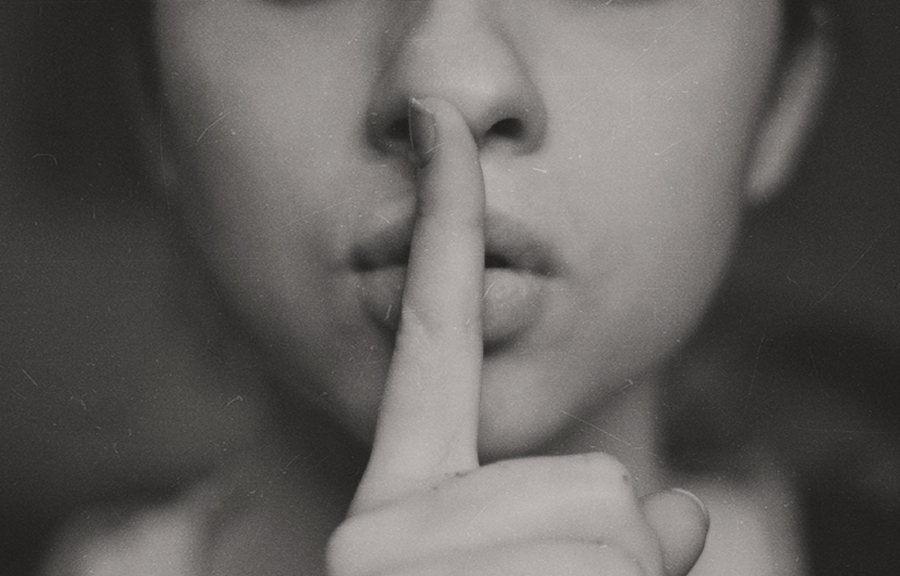
image: Unsplash
“The last several months have been deeply troubling for our country as previously untold stories of sexual assault and harassment have emerged across many sectors of society that impact all communities,” José Menéndez, State Senator, D-San Antonio, wrote late last month. “Victims often cite fear of retribution from abusers as a primary barrier to sharing their stories. Unfortunately, those who have been victimized might also be silenced by the very document they thought would protect them: A non-disclosure agreement.”
Non-disclosure agreements – or NDAs – are, as Menéndez states, “critical tools to ensure proprietary data is protected, such as the design of a new product or idea.” Manufacturing processes, formulas, computer algorithms, and industrial designs, as well as business strategies and customer lists, are the types of confidential business information that provide an enterprise with a competitive edge and thereby, serve as the type of trade secret information that is commonly protected by NDAs.
Yes, one of the most straightforward uses of NDAs is aimed at maintaining a business’ competitive advantage and/or propriety information. In fashion, this can mean avoiding the spread of collection-specific information before a collection’s grand unveiling. For example, Louis Vuitton debuted its collaboration with Jeff Koons to editors in Paris for its Fall/Winter 2017 womenswear show in March. In doing so, Louis Vuitton – according to TFL sources – required editors to sign away their ability to write about the collaboration, as Vogue was already granted the exclusive privilege to cover it first.
The purpose of the NDA, however, is not merely limited to efforts to preserve-the-mystery of a collection. In some cases, such an agreement may be put into place to keep designers/creative directors’ antics under wraps. Diva-like behavior – paired with the desire to debut exclusive content on Keeping Up with the Kardashians – is likely the reason rapper/designer Kanye West makes extremely widespread usage of NDAs, as we explored in depth here.
In addition to the aforementioned instances of NDA usage, these legal provisions are increasingly being used to protect predators, by “discouraging or prohibiting the reporting of assault or harassment,” per Menéndez. He cites the victims of disgraced film producer Harvey Weinstein, who were “silenced by NDAs as part of legal settlements that followed their allegations against the Hollywood mogul.”
According to Menéndez, “We may never know how many people were victimized by high-profile, powerful men, in part because the atrocities they reported were buried under the protection of non-disclosure contracts, involving organizations and people like Fox News, NBC, Catholic Healthcare West, actor Bill Cosby, Google and Binary Capital.”
Historically, Menéndez states, individuals in the workforce “have been protected under the National Labor Relations Act, known as the ‘Wagner Act,’ passed by Congress in 1935. It protects the rights of employees and employers by encouraging collective bargaining and restricting certain private sector labor and management practices.”
But the enforcement of contracts, such as NDAs, remain a matter of state law, “giving little or no protection to the many victims of harassment cases who regretfully sign such documents.”
In working to introduce state legislation that “will prohibit nondisclosure or confidentiality agreements that keep employees from reporting harassment, abuse, assault or other crimes,” Menéndez says that he is “not against NDAs that protect intellectual property and proprietary business practices.” What he is against? The use of NDAs to “prevent individuals from reporting criminal acts. They shouldn’t be used to buy a victim’s silence. No one who has experienced harassment or assault should be silenced or punished for speaking out.”
UPDATED (March 20, 2018): In connection with its recent bankruptcy filing, the Weinstein Company announced that it had released anyone “who suffered or witnessed any form of sexual misconduct by Harvey Weinstein” from nondisclosure agreements. “Since October, it has been reported that Harvey Weinstein used non-disclosure agreements as a secret weapon to silence his accusers. Effective immediately, those ‘agreements’ end,” the company said in an emailed statement.











